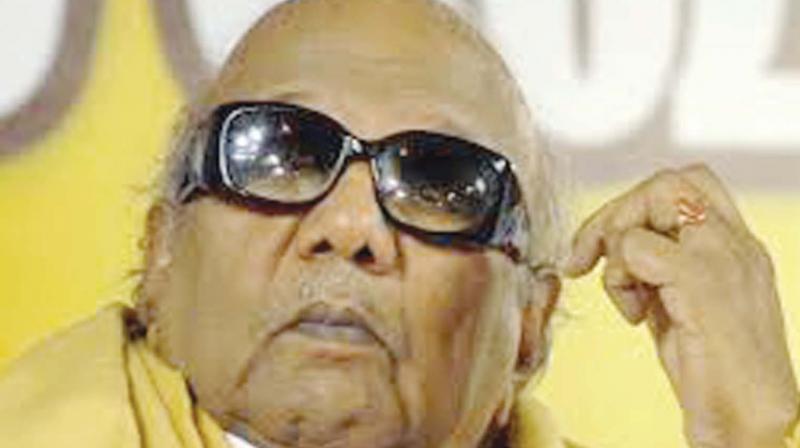Politics negates Dravidian self respect movement

The two poles of Tamil Nadu politics are no longer alive and their polemical rivalry is now a thing of the past. What is the architecture of political economy the competitive Dravidian parties, headed by Kalaignar Karunanidhi, MGR and Jayalalithaa had built up? Take the example of Kalaignar’s politics. He was one of the pioneers of the Dravidian movement, lived long to have seven decades of political and cultural life. He was part of a collective leadership till the late 1960s. Since then, the DMK which he headed, especially after MGR’s exit in early 1970s, was a sole leader led party, though it had substantial second rung leaders. The AIADMK of MGR and later Jayalalithaa was a single person led party. But surprisingly, the latter is now surviving as a collectively led party.
The theme of discussion here is something else. These parties are offshoots of the self respect movement, which despised the Brahminical way of hierarchical society. Self respect among citizens is in simple terms, understanding the one’s self worth and treating others with respect. It is the ultimate democracy in the social fabric. In such a society, icons have no place. Anything or anyone is looked at critically, while acknowledging what is due. Seven decades of Dravidian politics ought to have achieved at least a part of it, if we have to rate their leadership as a success. With the three pillars after Anna no longer there, it is time to take stock of the situation.
The rule of DMK as well as the AIADMK, had witnessed a chain of welfare measures as well as a slew of corruption scandals. The Sarkaria commission report which had enquired into allegations of corruption against the Karunanidhi government of the 1970s, interestingly talked about the methodology of “scientific corruption”. Allegations of corruption against MGR government were a cry in the wilderness and nothing concrete could ever be alleged or proved. But Jayalalithaa’s regime had seen unprecedented allegations and the disproportionate asset case of 1991-96 tenure ended in conviction of all the accused after Jayalalithaa’s death. The electoral democracy witnessed the baneful practice of ‘cash for votes’ during the heyday of power of these movements. A part of this came out through huge seizures of cash during the election time.
As regards governmental policy, a number of welfare measures like housing schemes, free televisions, mixes, grinders, cycles and cloth were implemented. The public became recipients of doles and leaders the benevolent givers. It was just a redistribution of public money gathered as taxes and other revenues through highly publicized programmes. It is not to criticize welfare programmes per se, but to bring out the paternalistic or materialistic ingredient within it.
The giver claimed primordial loyalties in the form of emotional and electoral support. The giver-recipient relationship puts the former on a pedestal and the latter in the status of a worshipper. This is negation of the concept of self respect, which was a negation of all kinds of looking up to something or somebody. In short, the long rule of the offshoots of the self respect movement has resulted in negation of negations. This is nothing but reversing the gear of self respect movement which had its early beginnings in Tamil Nadu.
But one fact cannot be left unnoticed. Expectations of the giver in the paternalistic and materialistic welfare politics proved to be irrational. After MGR, no party could rule Tamil Nadu for more than one term, except in 2016, when the elections were fought too closely and a minor inclusion in alliance could have made the results different. Expectations of permanence and loyalty in return for the paternalistic and materialistic stamp on welfare schemes have proved irrational for those in power.
Can one conclude that the streaks of self respect movement have remained strong despite serious attempts to put out its flames by its own inheritors who came to power on the strength of its slogans? As far as the common citizen and voting behaviour is concerned, it could be true as s/he could vote with feet even while the recipient status was sought to be stuck on them.
But as far as persons, who touched feet of a leader in public, till recently, the negation of negations was very strong. From the political void of three icons, a catalyst which would negate the negation of negations might become strong. One has to wait and watch for an era of post-iconisation in a land where iconoclasts organized as a social and political movement almost three quarters of a century ago.
(R. Mohan is a former civil servant)

